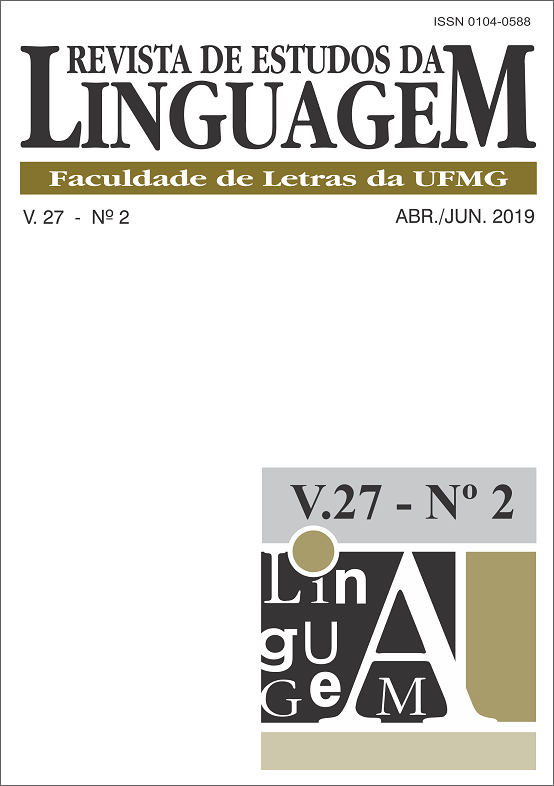Sobre o licenciamento de “sequer” em interrogativas do português brasileiro / On the licencing of “sequer” in Brazilian Portuguese interrogatives
DOI:
https://doi.org/10.17851/2237-2083.27.2.1015-1049Palavras-chave:
itens de polaridade negativa, sentenças interrogativas, semântica, negative polarity items, questions, semantics.Resumo
Resumo: Neste texto, investigamos o comportamento do Item de Polaridade Negativa “sequer” em contexto de interrogação no português brasileiro (PB). Nosso objetivo com esta pesquisa é descrever a distribuição de “sequer” em tal ambiente e propor uma semântica para esse item, buscando explicar, sobretudo, o contraste existente entre sentenças como “ela sequer ligou?” e “*ela sequer ligou ou não?”. Para tanto, apresentamos algumas das principais propostas para lidar com IPNs encontradas na literatura, bem como alguns dos problemas que elas enfrentam, para, então, nos concentrarmos no licenciamento de IPNs em estruturas interrogativas e também no funcionamento de “sequer” nesse tipo de contexto. Concluímos, com a análise desse item, que interrogativas polares, de alternativa e de constituinte (wh) são ambientes propícios para o aparecimento de “sequer”, ao passo que questões de alternativa polar (A-não-A) bloqueiam sistematicamente a presença desse item. Como explicação para o comportamento observado, defendemos a hipótese da exaustividade forte elaborada por Guerzoni e Sharvit (2007) e demonstramos que “sequer” é bloqueado em interrogativas de alternativa polar como consequência de uma incompatibilidade entre propriedades do IPN e da estrutura inquisitiva.
Palavras-chave: itens de polaridade negativa; sentenças interrogativas; semântica.
Abstract: In this paper, we investigate the behavior of the negative polarity item (NPI) “sequer” in interrogative contexts in Brazilian Portuguese (BrP). Our aim with this inquiry is to describe the distribution of “sequer” in such contexts and to propose a semantic denotation for this item, searching mainly to explain the contrast between sentences like “ela sequer ligou?” and “*ela sequer ligou ou não?”. In order to do that, we first present some of the main proposals found in the literature to deal with NPIs, then we focus on the licensing of NPIs in interrogative sentences and also on how “sequer” works in this kind of context. We conclude with the “sequer” analysis that polar questions, alternative questions and constituent questions are a suitable environment for the emergence of “sequer”, while polar alternative questions (A-not-A) systematically block the presence of this item. As an explanation for the observed behavior, we defend the strong exhaustiveness requirement elaborated by Guerzoni and Sharvit (2007) and show that “sequer” is blocked in alternative polar questions as a consequence of an incompatibility between the properties of “sequer” and the inquisitive structure.
Keywords: negative polarity items; questions; semantics.





